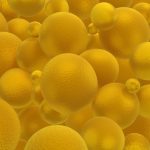Antibodies in Breastmilk Important to Prevent Disease in Preemies
Node Smith, ND
A new study from the University of Pittsburgh and UPMC Children’s Hospital of Pittsburgh finds that an antibody in breastmilk is necessary to prevent necrotizing enterocolitis (NEC)- an often-deadly bacterial disease of the intestine- in preterm infants.
An antibody in breastmilk is necessary to prevent necrotizing enterocolitis (NEC)
Immunoglobulin A (IgA) antibodies bind to bacteria in the gut, and, according to the study, the more bacteria that’s tied up with IgA, the less likely babies are to develop NEC. Since preterm infants get IgA only from mothers’ milk in their fragile first weeks of life, the authors emphasize the importance of breastmilk for these babies. The study appears today in Nature Medicine.
It’s well-known that babies who get NEC have particular bacteria in their guts
It’s been well known for a decade that babies who get NEC have particular bacteria- Enterobacteriaceae- in their guts, but what we found is that it’s not how much Enterobacteriaceae there is, but whether it’s bound to IgA that matters. And that’s potentially actionable,” said Senior author Timothy Hand, Ph.D., assistant professor of pediatric infectious diseases at the R.K. Mellon Institute for Pediatric Research and Pitt’s School.
Researchers looked at fecal samples from 30 preterm infants with NEC
The researchers looked at fecal samples from 30 preterm infants with NEC and 39 age-matched controls. Overall, breastmilk-fed babies had more IgA-bound gut bacteria than their formula-fed peers, and those who developed NEC were more likely to have been formula-fed.
Tracking these infants’ gut microbiomes over time
Tracking these infants’ gut microbiomes over time, Hand’s team found that for the healthy babies, Enterobacteriaceae was largely tied up by IgA, allowing diverse bacterial flora to flourish. But for the NEC infants in the days leading up to diagnosis, IgA-unbound Enterobacteriaceae was free to take over.
To demonstrate causation between IgA and NEC, Hand and his team used a mouse model.
“Mice, when they’re born, are equivalent in their intestinal development to a human baby born at 24 weeks,” said lead author Kathyayini Gopalakrishna, M.D., a Ph.D. student in the Pitt Graduate School of Public Health’s Department of Human Genetics, “so they’re a perfect model to study NEC in preterm infants.”
Researchers bred mice that couldn’t produce IgA in their breastmilk
The researchers bred mice that couldn’t produce IgA in their breastmilk. Pups reared on IgA-free milk were just as susceptible to NEC as their formula-fed littermates. So, breastfeeding in and of itself is not sufficient for NEC prevention. The milk must contain IgA to confer this specific benefit.
Solution for NEC may not be as simple as putting IgA into formula
But the solution for NEC may not be as simple as putting IgA into formula, Hand said. Because breastmilk has other benefits beyond IgA, donor milk is still the best option to fill the gap when breastfeeding or providing pumped maternal milk isn’t an option.
“What we showed is that IgA is necessary but may not be sufficient to prevent NEC,” Hand said. “What we’re arguing is that you might want to test the antibody content of donor milk and then target the most protective milk to the most at-risk infants.”
Source:
- Hand, T.W. et al. (2019) Maternal IgA protects against the development of necrotizing enterocolitis in preterm infants. Nature Medicine. doi.org/10.1038/s41591-019-0480-9.
 Node Smith, ND, is a naturopathic physician in Humboldt, Saskatchewan and associate editor and continuing education director for NDNR. His mission is serving relationships that support the process of transformation, and that ultimately lead to healthier people, businesses and communities. His primary therapeutic tools include counselling, homeopathy, diet and the use of cold water combined with exercise. Node considers health to be a reflection of the relationships a person or a business has with themselves, with God and with those around them. In order to cure disease and to heal, these relationships must be specifically considered. Node has worked intimately with many groups and organizations within the naturopathic profession, and helped found the non-profit, Association for Naturopathic Revitalization (ANR), which works to promote and facilitate experiential education in vitalism.
Node Smith, ND, is a naturopathic physician in Humboldt, Saskatchewan and associate editor and continuing education director for NDNR. His mission is serving relationships that support the process of transformation, and that ultimately lead to healthier people, businesses and communities. His primary therapeutic tools include counselling, homeopathy, diet and the use of cold water combined with exercise. Node considers health to be a reflection of the relationships a person or a business has with themselves, with God and with those around them. In order to cure disease and to heal, these relationships must be specifically considered. Node has worked intimately with many groups and organizations within the naturopathic profession, and helped found the non-profit, Association for Naturopathic Revitalization (ANR), which works to promote and facilitate experiential education in vitalism.
Node Smith graduated from the National University of Natural Medicine (NUNM) in 2017, and is currently licensed as a naturopathic physician in Oregon and working towards becoming licensed in Saskatchewan, Canada as well.










